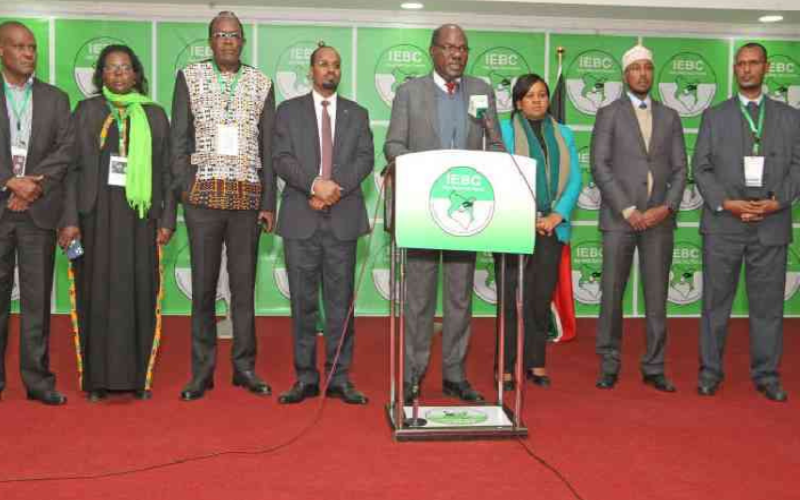
In the ongoing petitions challenging the August 9th, 2022 elections, the role of the electoral body’s commissioners is coming up quite a lot. This is especially so regarding the unilateral decision of Mr.Wafula to declare Mr.William Ruto the president-elect.
Top lawyers such as Otiende Amollo have stated that Mr.Wafula Chebukati is just the first among equals and decisions by the IEBC should be done unanimously or by a majority vote not unilaterally.
Attorney General Paul Kariuki Kihara called upon the Supreme Court yesterday to clarify the functions of the chair of the Independent Electoral and Boundaries Commissioners.
Is the executive role conferred on the chairman or is he part of the commission and can he/she only act in community with the commission? Asked the AG through his lawyer George Oraro.
Another question that came up during the hearing of the petition is whether the constitution addresses the absence of a chairman in the IEBC if Wafula Chebukati is ousted from office on grounds of election irregularities and illegalities.
In this year's election, four commissioners distanced themselves from the rest of the team at the 11th hour just before the declaration of the presidential results.
The 2017 election was marred with drama as four commissioners resigned citing the lack of faith in Wafula Chebukati as the chairperson.
The Commission is responsible for conducting or supervising referenda and elections to any elective body or office established by the Constitution, and any other elections as prescribed by an Act of Parliament and, in particular, for;
•The continuous registration of voters and revision of the voter's roll
•The delimitation of constituencies and wards
•The regulation of the political parties process
•The settlement of electoral disputes
•The registration of candidates for elections
•Voter education
•The facilitation of the observation, monitoring, and evaluation of elections
•The regulation of money spent by a candidate or party in respect of any election
•The development of a code of conduct for candidates and parties
•The monitoring of compliance with legislation on the nomination of candidates by parties.
By Fridah Wangechi | 1 year ago
By Fridah Wangechi | 1 year ago
By Fridah Wangechi | 1 year ago